Sade Green: Speaking Her Truth to Power
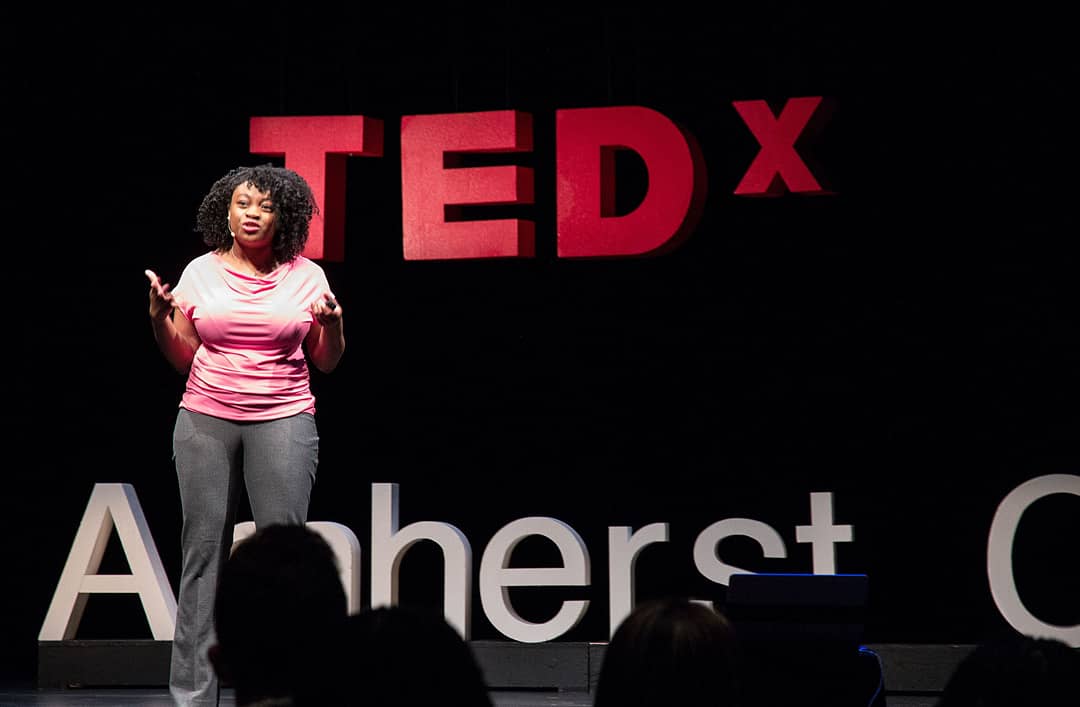
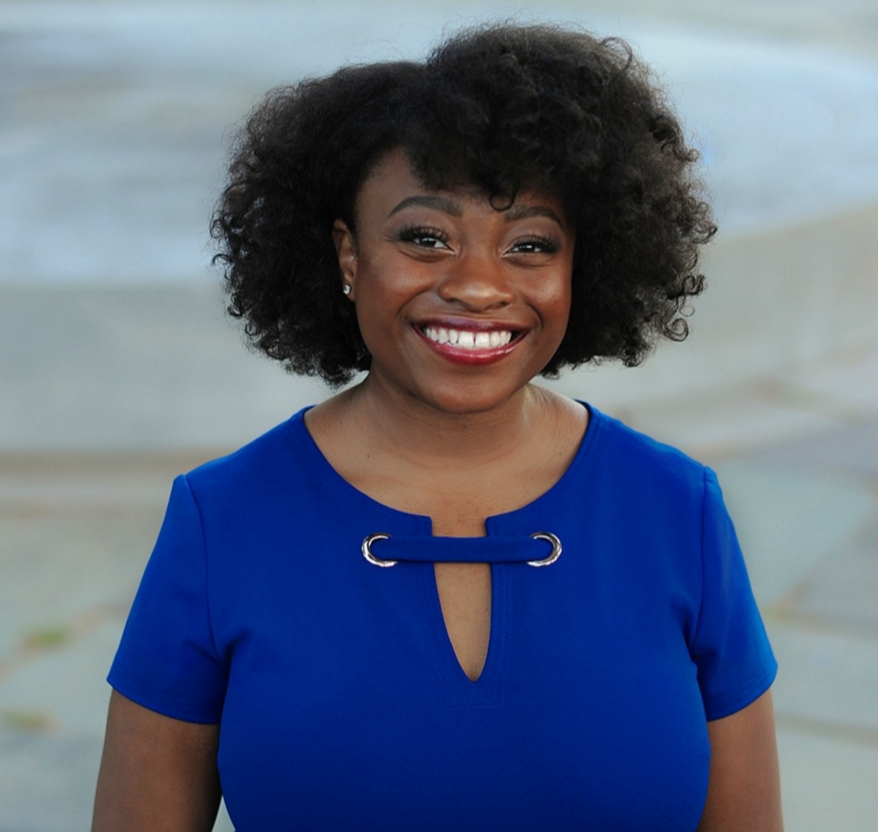
One of the things that stood out to me most about Sade Green ’20 during our two-hour long conversation was her laugh. Distinctive and full of levity, her hearty laughter immediately laid the groundwork for the ease with which we communicated with each other. Bulaong Ramiz-Hall, former director of the Multicultural Resource Center (MRC) who previously worked with Green, summed up her laugh perfectly: “It is just a sound that I can call on and it’s present.”
Ramiz-Hall continued, “I think that’s one of my favorite things about her,” she said. “Especially as Black women, the more conscious we get, the more violent experiences we have … it can be hard to access some of that joy and laughter … I think it’s really beautiful that she could experience a place like Amherst and the world and be as conscious as she is and still have a beautiful, memorable laugh.” It is through this laugh that I was able to see the confident and accomplished Sade Green — not only for her numerous achievements, but for the kind and warm soul behind her many accolades.
A Passion Awakened
Hailing from Long Island, New York, Green has been immersed in a wide variety of activities ever since high school. In addition to being a member of the Future Leaders of America and a track and field runner, Green was the managing editor of her high school’s newspaper as well as the president of the Key Club, where she mainly used her platforms as avenues for holding greater discussions on social justice issues.
With a strong desire to further shed light on problems affecting people of color, Green stated that it was understanding her own power that really encouraged her to get involved with politics.
She credits her experience working at the District Attorney’s office in Nassau County as setting the stage for the path that she would go on to pursue in college. As a 17-year-old intern, Green was able to advocate for less severe punishments for young people of color who had recently been convicted. She remembers a specific conversation with a young Black boy who committed a crime, opening his eyes to the long-term barriers that his sentence would bring in his future. In the end, the boy faced a lighter punishment instead of being sentenced to juvenile detention. That was the first time, Green notes, “where I realized I could advocate for people in my community and create a change,” she said. “I didn’t single-handedly do it … but I played a role in preventing the school [to] prison pipeline. And I realized that this is something that could be a career for me.”
From her internship at the DA’s office to her time as the president of Key Club in high school, it was difficult for Green to ascertain a specific moment that completely cemented the steps she would take in the future. Rather, it seems that the turning point was a combination of different moments.
“Sometimes, it just hits you,” she said. “But I think after you’ve been brave enough for a while, you start to know yourself, and you know what you want to do.”
As such a well-rounded student, it was no surprise, then, that Green chose to attend Amherst, where she always knew she would major in English. As someone who aspired to go to law school, she had considered being a political science major or an LJST major — because that’s what was expected. But she adamantly stated that she chose English because “I wanted to do something I love.”
During her first years at Amherst, mentors and friends alike both commented on Green’s drive as well as her goal-oriented approach to life. Sommer Hayes ’20E, who has been Green’s friend since her first year, mentioned that “she has such a strong grasp on her purpose … [She’s] making decisions not based on probabilities or what might happen, but [rather] ‘This is where I am. This is what I can do. What steps do I need to take to go further down this path?’”
In addition to describing her as curious and empathetic, Ramiz-Hall also noted that she is particularly fond of Green’s self-focused attitude. “Sade is a person who I have experienced as [being] committed to her own growth,” she expressed. “Committed to learning about herself, committed to thinking about how to be better.”
“I think that kind of self focused learning and development is vital to becoming a productive, compassionate human in the world,” Ramiz-Hall continued. “Over time, I’ve watched Sade grow from an unsure first year at Amherst trying to find her place to an outspoken, unapologetic Black woman who is not afraid to speak truth to power and to pretty much say it like it is.”
“Speaking truth to power,” a phrase Green continuously used throughout our own conversation, encapsulates the fearless nature with which Green engages activism.
“For me,” she asserted, “speaking truth to power is saying what needs to be said, even if it’s not the most popular thing, and even if it might cost you something, even if you’re afraid.”
Both in and out of Amherst, Green’s strong grasp on how she views the world and her involvement in shaping it grounds her passion for social justice.
Her commitment to advocating for change stems heavily from her experiences as a Black woman in America as well as seeing the futures of other Black people taken away by a system that is routinely stacked against them.
“My activism came out of a necessity to see my community alive and it wasn’t something I did for fun,” she said. “For me, it was always about how do I fight for my community’s right to life, liberty and the pursuit of happiness because we’re owed this. ”
“I think seeing those injustices,” she went on to say “was not even negotiable. I looked at these injustices … and realized we don’t have to live in a world like this — we can change it. Because there was a point where it didn’t look this [way].”
Putting Words Into Action
Green’s goals and aspirations to continue amplifying the voices of marginalized individuals are reflected greatly in her work with the MRC and the Association of Amherst Students (AAS) on campus.
As a program director for the MRC since her first year, Green organized several programs around race, intersectionalities and social justice, such as Kinks, Coils and Curls, an event that celebrated Afro hair textures. She also helped co-host programs like Black Art Matters, an exhibit at the Mead Art Museum, and has worked continuously to facilitate conversations about race on campus. She is also a member of the Black Student Union (BSU), African Caribbean Students’ Union (ACSU) and the Remnant Black campus ministry.
Starting in her first year, Green spent three years as a senator for the AAS. As one of her first leadership roles outside of the MRC, Green noted that being a representative gave her a glimpse into what amplifying the voices of marginalized communities would be like. “[During] budgetary committee meetings where they would allocate funding, I always had to pay extra attention to the funding they gave the BSU and ACSU and Remnant and other Black and brown organizations, because I had to make sure that their funding wouldn’t be cut or that they would get what they asked for. It was hard sometimes because there are people in student government who often don’t care if they cut funding from Black or brown organizations … they don’t see that inequity,” she said.
Green went on to illustrate that sometimes she was the only one in the room willing to spend time advocating for Black and brown student voices to be heard.
As a first year, for instance, her senate project consisted of creating a State of the College Address, an event that sought to enhance communication transparency between the college administration and the student body. President Biddy Martin, who has worked alongside Green, also had much to say about the significance of the project.
“Sade came to me several years ago, perhaps in her first year in the senate, to ask whether I would be willing to give an annual state of the college address that would be sponsored by AAS. I thought it was an inspired idea, and I was impressed with her initiative, her interest in governance and transparency and her determination to have an impact,” Martin said.
“Speaking truth to power for me was having the State of the College address,” Green said. “Even the mere act of suggesting that something be better, that things need to be improved, the mere act of asserting that you deserve more — that’s speaking truth to power. [It’s saying] this is what I desire.”
Admittedly, Green’s leadership roles could be burdensome. “I often feel worried that they’ll view me as the angry Black woman … but then I would remind myself that one, someone has to speak up. And two, people have been doing this before me,” she said.
In her efforts to continue “speaking truth to power,” Green greatly valued her summer 2017 congressional internship for U.S. Representative Kathleen Rice. Working alongside activists and politicians such as senators Elizabeth Warren and Cory Booker and Representative John Lewis, Green’s everyday responsibilities included researching legislation, producing policy letters and writing memos for hearings, briefings and committee meetings regarding immigration, healthcare, homeland security and more.
Green would come to carry these experiences with her from D.C. to Amherst, when she gave a TEDx Talk presentation at the college in her sophomore year. Titled “A Seat at the Table,” Green’s presentation discussed the importance of having people of color in positions of power. Through her time as an intern for Congress, where diversity was slim, Green used her presentation as a way of opening up dialogue on what it means for people of color to be actively involved in legislation.
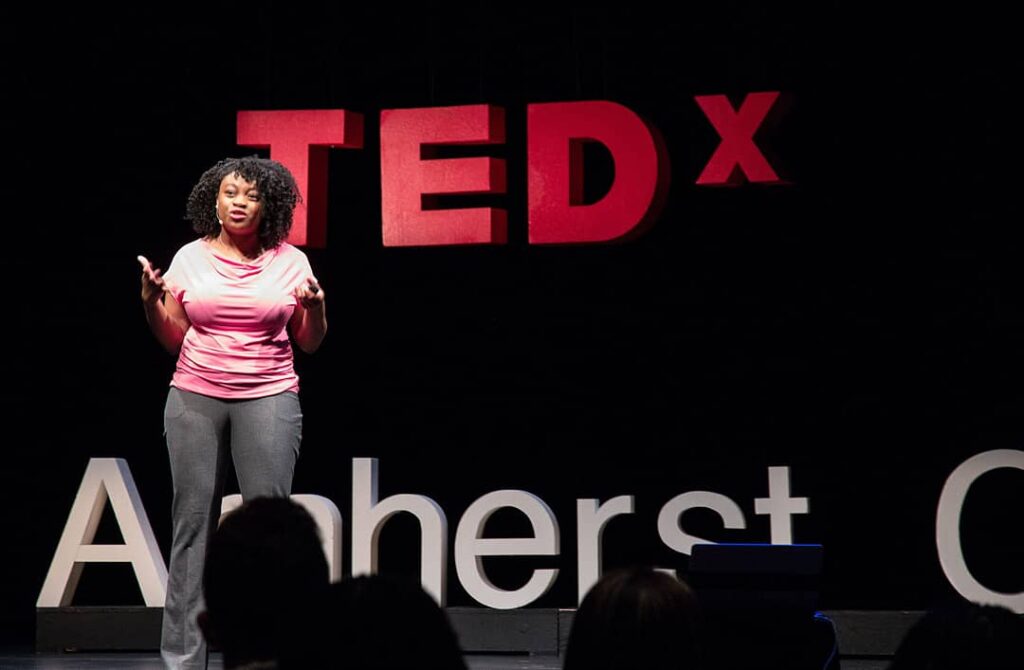
The TEDx Talk followed Green in many positive ways. In September 2019, she became a Forbes Under 30 Scholar, and she additionally organized the Leadership Brainery National Impact Summit at Harvard Law School in October 2019.
Writing As a Tool For Change
In addition to her robust activist role, Green also credits her love of writing as crucial in reaching the audiences that she impacts. Writing has always been an integral part of Green’s development, she said, both as a student at Amherst and as an activist who uses writing to elevate her voice and the voices of others. Green attributes writing as the tool that allowed her to find her voice, even before activism took root in her life.
However, when Green was a young Black reader, she didn’t really see herself represented in the books she read. Her thesis sought to be a response and a rejection of narratives that excluded girls like her.
For her senior thesis, Green produced a body of work that highlights stories that exist at the intersection between her passions for writing and activism. Green’s thesis, titled “Free Like No Fear,” is a creative collection of short stories that feature Black women and girls as the protagonists. The goal for each story, Green emphasized, was to represent some of the most marginalized identities within the Black community. In each story, the protagonists, Kendra, Aina, Jazz and Ruby, have to make a decision on whether to accept the narrative that society has imposed upon them or whether they will instead write their own stories. “Each story is about what it means to be brave enough to choose yourself, [and] what happens when Black women and girls [do],” Green said.
“I wrote this thesis, because I want Black girls to see themselves as leaders. I wanted us to be fully realized characters who have dreams, relationships, and hopes and fears,” she said. “You often don’t see that.”
Green also shared her love of being able to construct creative worlds that allow for all sorts of beautiful and necessary convergences to occur. “Creative writing allows me to create these characters, give them names, control the narrative and write newer, Blacker and freer narratives than the ones that this world tries to impose on us. That’s something that has always been a goal of mine,” she said. “How can I reject these narratives that society puts on Black people or Black women and girls specifically? And how can I write newer ones that we define for ourselves?”
A Goal Realized
After leaving Amherst, Green plans to take about two years off to work before going to law school. She sees herself working for a civil rights law firm or a nonprofit organization that handles racial justice or civil rights in the future.
Post-graduation, there are many lasting lessons that Green hopes to take with her. She started by stating that her greatest personal accomplishment in college “has been stepping into my greatness and owning it.” In doing so, Green noted that it has inspired many others to “own their Blackness and their greatness as well.” It’s a realization that gets at the core of Sade’s mission while at Amherst:
“Speaking truth to power,” said Ramiz-Hall, “also means speaking truth to yourself.”
Correction: The original version of this article misspelled Bulaong Ramiz-Hall’s name, which has since been corrected.
The earlier version also called the African Caribbean Students’ Union (ACSU) the African Caribbean Students Union (ACSU), which is the incorrect name. Both have been corrected on June 3, 10:05 p.m.


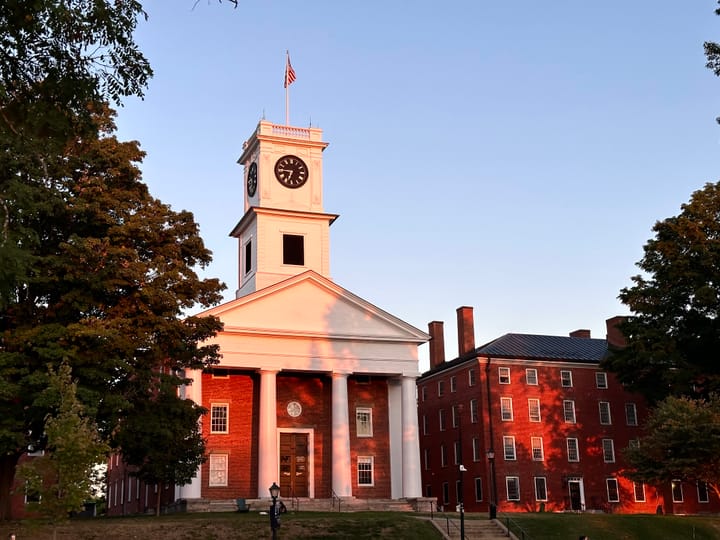

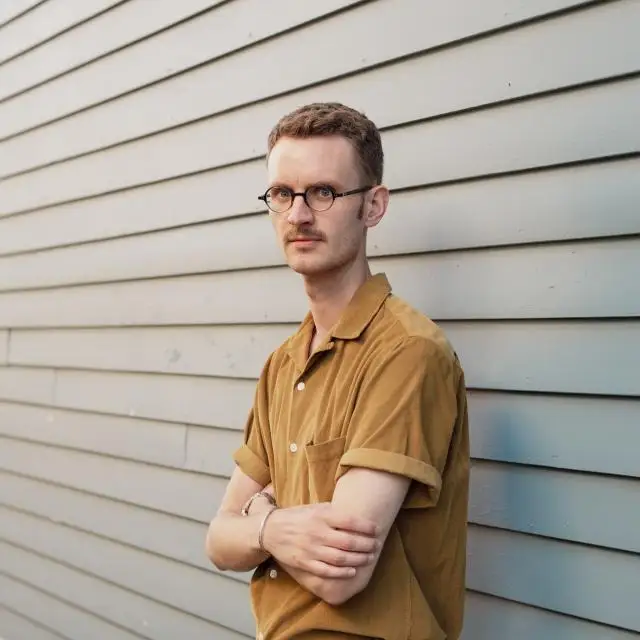
Comments ()